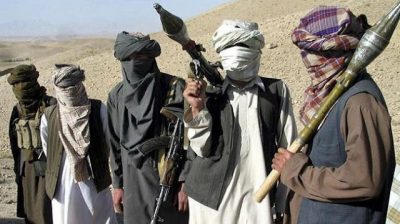By
Sattar Rind
Following the announcement of the death of Afghan Taliban leader Mullah Omar, his self declared successor Mullah Akhtar Mansoor has increased the suicidal attacks in Kabul, with more than one hundred civilians and Afghan militia killed or seriously injured this month.
This is a huge figure compared to the number of deaths within the last nine months since US/NATO forces left Afghanistan.
It is also the first time the new president of Afghanistan Ashraf Ghani directly blamed Pakistan for being behind Saturday and Monday’s suicide bombings in Kabul.
In a recent press conference Ghani has been quoted as saying that “The last few days have shown that suicide bomber training camps and bomb-producing factories which are killing our people are as active as before in Pakistan.” He also said that “We hoped for peace but we are receiving messages of war from Pakistan.”
Hamid Karzai, the former president of Afghanistan always blamed Pakistan and its intelligence service ISI for insurgencies and the Taliban attack in Afghanistan. One minister of the Afghanistani government, Abdullah Abdullah, has always remained anti-Pakistan, holding them responsible for all unrest in Afghanistan from the day of the Soviet’s withdrawal.
Before this, Pakistan was active and hosting negotiations between the Afghan Taliban and Afghan government. Their first meeting was held on June 7th 2015 in the hilly area of Murree, barely 30 kilometres from the capital city of Islamabad. In this meeting the USA, China and Pakistani representatives were also present as observers. No result whatsoever had been announced, although the date for the next planned meeting was confirmed.
When this news appeared in the media, the question of its legal authority was raised by a number of people, in particular the Supreme Council of the Taliban who were representing the Taliban having given them such rights of negotiations previously. What therefore was the agenda’s point of discussion?
A statement had been issued in the name of the supreme leader of the Taliban, Mullah Omar on June 19th 2015 in favour of talks. However, such a statement added to the rumours of Mullah Omar’s ill health and even death just two days before fresh peace talks were scheduled. This was also a precursor to the first such confirmation from the Afghani government that Mullah Omar died in April 2013 in a Pakistan, Karachi hospital.
This now indicates that the messages sent out in Mullah Omar’s name over the last two years were all lies and deception, including that of him being in favour of the talks between the Afghan Government and Taliban in Murree.
A war had also started between the Taliban and a newly emerged local branch of ISIS, of the South Asian chapter of Afghanistan, many Taliban leaders having changed their loyalties by joining ISIS. Perhaps they knew that Mullah Omar had died and needed another Caliph to follow.
The Taliban continued to warn ISIS against expanding in the region, but this has not stopped them, the attacks and killings in Afghanistan now at their peak.
Some columnists in Pakistan have also indicated the cause of Malik Ishaq‘s death was in the same connection, it also being reported that one of his deputies had arranged a meeting for him with a delegate from ISIS in Quetta, an alliance having been made.
Nevertheless scheduled talks between the Taliban and Afghani government did not take place due to the above mentioned reason.
Last week the newly named Taliban leader aggressively began attacks on Kabul and its surrounding provinces. It is assumed that he wants to continue the war for his own leadership, the general belief that he is trying to prove himself a tough and die-hard leader who can fight with both ISIS and the Afghan government at the same time.
In addition to this, it is not a good sign that the two countries’ good relationship is now changing to a bitter one. Afghanistan should realise that Pakistan has already experienced great sorrow from the war against terrorism, having lost numerous civilians as well as military personnel.
However, the existing chief of army staff, Raheel Sharif has started the operation against all insurgencies in the country and Taliban area in North Waziristan, the result of which being respected by independent media sources around the world, gaining popularity also with the peace loving people of Pakistan.
The United States has also called on both countries to work together to defeat violent extremism, hoping the recent Taliban attacks will not be a set back to efforts aimed at promoting Afghan peace and reconciliation, no specific information supporting the Pakistani involvement in such attacks on Kabul.
It is however an open fact that talks have already been derailed by the Taliban. Mullah Mansoor, who is around 50 years old, has pulled out of the Pakistan-sponsored peace talks between the Taliban and Afghani government, vowing that the jihad will continue. The coming days for this region can therefore not predict anything good, in either direction.
Most recently ISIS has issued a four minute video showing innocent people being blown up by bombs. From this it can now be believed that they are ready to go against the Taliban, as well as anyone else they consider a threat.


